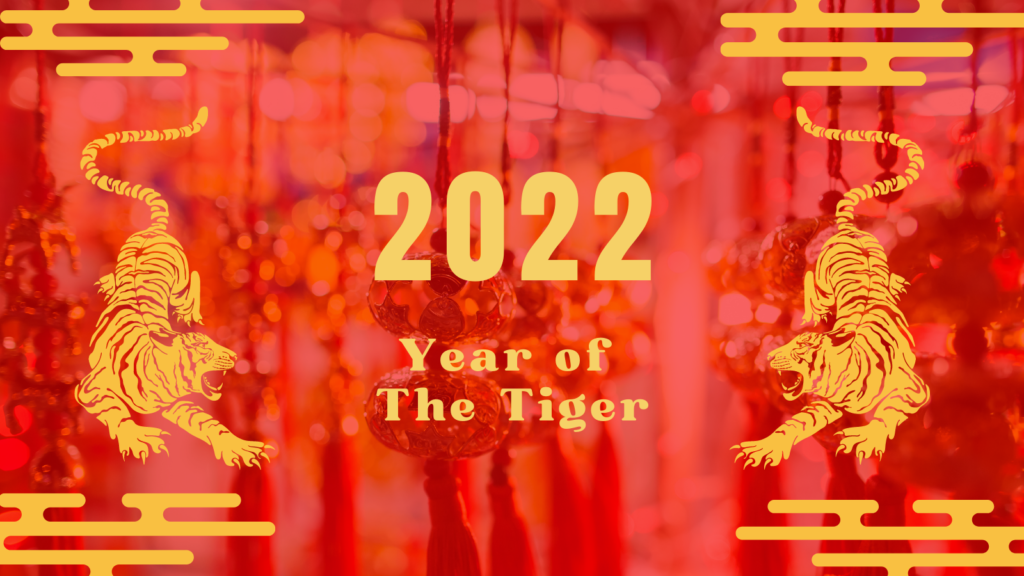
Written by: Anny Nguyen, SDSU Asian Pacific Islander Social Work Association
February 1st marked the rise of the second new moon after the winter solstice and the beginning of Lunar New Year. Lunar New Year is a celebration that can last for 15 days until the arrival of the first full moon. In 2022, we celebrate the Year of the Tiger. The tiger represents courage, strength, generosity, and ambition. Those born in the Year of the Tiger are said to have these qualities as well as the desire to help others for the greater good. These are qualities that are not just believed to be in people born in the Year of the Tiger, but in all of us as we continue to move forward through each of our journeys.
Many Asian countries and communities celebrate Lunar New Year as not only a time to honor heavenly deities and ancestors but as a time to put the past behind us and to start anew. As I visited festivals and temples with my family this year, I am seeing how far we have come as a community, despite setbacks that have resulted from anti-Asian hate and the COVID-19 pandemic. We are learning to adjust. Visiting temples with my family, I saw hand sanitizing stations and signs asking people to wear masks and to be 6 feet apart. At the festivals, I see diverse people coming together to enjoy and have a good time while learning or teaching others about culture and traditions.
Although I have seen unease, such as when the doors to the temples were closed at night for the fear of someone coming in to mess up the establishment, I have also seen pride. Pride in still being able to come together and finding strength in one another. Pride in who we are and what we do. Pride in our accomplishments. As we move forward into the new year, we carry this pride with us along with the qualities of a tiger so that we can continue to overcome challenges that come our way as a community.
References
https://www.history.com/topics/holidays/chinese-new-year
https://chinesenewyear.net/zodiac/tiger/

Learn about the signs of depression and anxiety and how to support yourself in times of stress.
UPAC offers a variety of free mental health services to help prevent, treat and maintain your mental health. Learn more about our programs.
Asian Mental Health collective offers a variety of AAPI mental health resources, including a listing of AAPI therapists.







